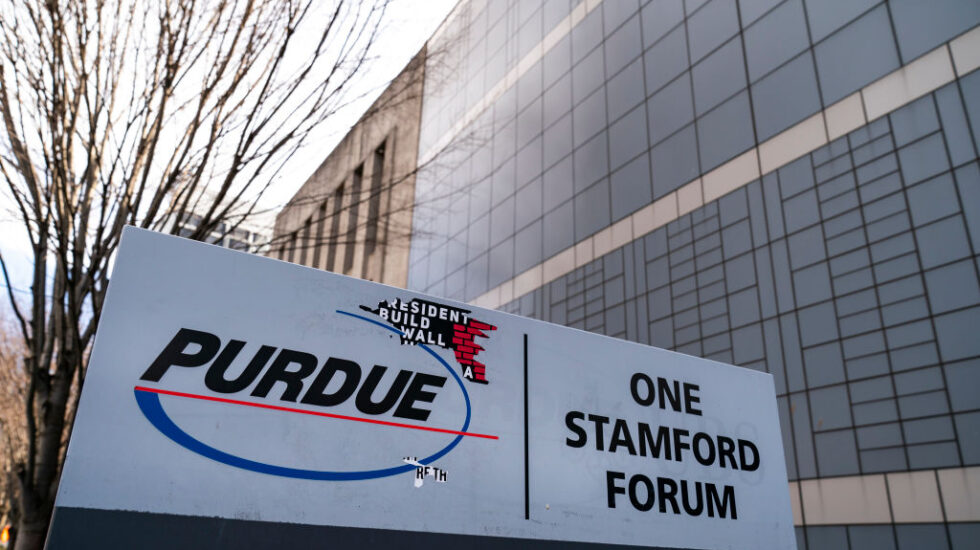David Sackler has broken his family’s silence about the opioid crisis.
He’s a former board member of the Sackler family-owned Purdue Pharma, which is widely blamed for touching off the nationwide opioid-addiction epidemic with its prescription painkiller OxyContin.
Sackler agreed to an interview with Vanity Fair, despite what he calls the “consternation” of other family members and advisers.
Asked why he chose to talk, Vanity Fair’s Bethany McLean writes, “he cites what he calls the ‘vitriolic hyperbole’ and ‘endless castigation’ of his family.
“I have three young kids,” he says. “My four-year-old came home from nursery school and asked, ‘Why are my friends telling me that our family’s work is killing people?’”
OxyContin first appeared in 1996; since then, the magazine writes, “more than 400,000 Americans have died from opioid overdoses—including some 200,000 from prescription opioids. Millions more continue to struggle with addiction, and entire communities have been devastated by the epidemic.”
It adds that 48 states and “more than 500 cities, counties, and tribal governments” have sued Purdue, accusing the company of “fueling the crisis with a wide range of deceptive practices.”
The lawsuit filed by Massachusetts points a finger directly at eight members of the Sackler family (including David), saying they “made the choices that caused much of the opioid epidemic.”
David Sackler dismisses the many suits, saying he doesn’t think there’s “much in the complaints” beyond the view that Purdue should never have marketed OxyContin in the first place — which he calls “a hindsight debate.”
A central claim in the furious campaign aimed at Purdue and the Sackler’s is that “the company and its board should have understood what OxyContin was unleashing,” and done something about it.
“But the company did not halt its push to sell higher doses and longer-term prescriptions of OxyContin — both of which increase the risk for addiction, and both of which were highly profitable for Purdue,” says Vanity Fair.
Sackler thinks the real problem is that because of his family’s refusal to comment, “others have seized control of the story.”
“We have not done a good job of talking about this,” he says. “That’s what I regret the most.”
Later in the conversation, Sackler got around to addressing “the countless lives that have been devastated” by OxyContin.
“We have so much empathy,” he says, referring to his family. “I’m sorry we didn’t start with that. We feel absolutely terrible. Facts will show we didn’t cause the crisis, but we want to help.”
But “facts can be slippery,” the magazine writes. “And in the pharmaceutical industry, where money can buy science, sway patients and providers, and influence the regulatory environment, facts are just one more thing that’s for sale.”
The Food and Drug Administration, which approved OxyContin for sale in 1995, concedes that it contributed to the crisis.
“The opioid crisis is one of the largest and most complex public health tragedies that our nation has ever faced,” an FDA spokesperson told Vanity Fair. “Sadly, the scope of the epidemic reflects many past mistakes and many parties who missed opportunities to stem the crisis, including the FDA.”
“Today, public health professionals and government regulators agree that prescriptions for medications like OxyContin, which peaked in 2003 and have declined substantially since then, are no longer the driving force behind the opioid epidemic,” the magazine writes, noting that the biggest problem now is fentanyl, a synthetic opioid linked of Tom Petty and Prince, among many others.
But Purdue’s critics say the company is “effectively responsible for the spread of fentanyl,” because,” says Vanity Fair, it “helped get millions of Americans addicted to prescription opiates [and then] reformulated OxyContin to make it harder to abuse, driving addicts to seek out a substitute high.”
Such claims, the magazine says, make Sackler “visibly upset” and “although his words are measured, his tone is not.”
“It really stuck with me,” he says. “That argument doesn’t hold up.”
“Listening to Sackler, I have no doubt that he fully believes the narrative he has assembled from the facts he has chosen to see,” McLean writes.
“That’s why his stance is ultimately defensive rather than apologetic. As he sees it, his family’s company should be applauded for its efforts to address the opioid epidemic, not castigated for helping to create it.”



